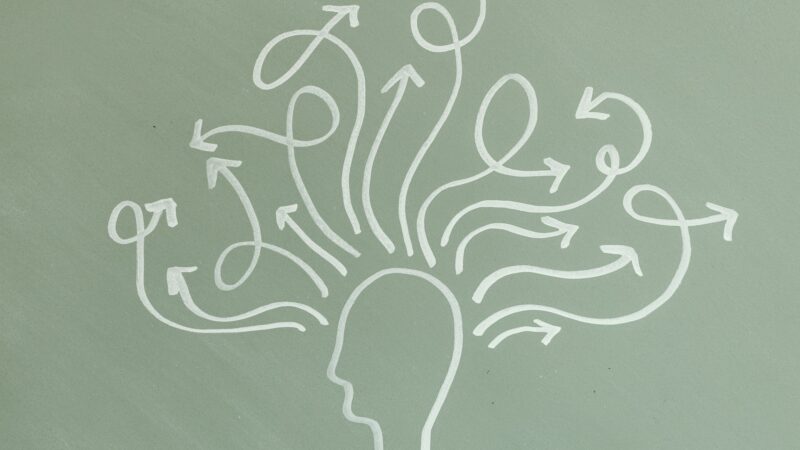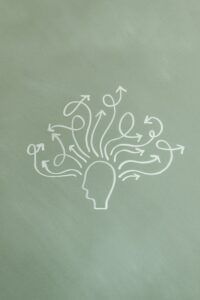What Are Symptoms of ADHD

What Are Symptoms of ADHD
Attention Deficit Hyperactivity Disorder ADHD is a neurodevelopmental disorder that affects both children and adults. It characterized by persistent patterns of inattention hyperactivity and impulsivity that can significantly impact daily functioning. Understanding the symptoms of ADHD is crucial for timely diagnosis and effective management.
- Introduction
ADHD is more than just occasional forgetfulness or restlessness; it a complex condition that requires attention and understanding. According to recent studies ADHD affects approximately 5% of children and 2.5% of adults worldwide.
- Types of ADHD
There are three main types of ADHD: inattentive hyperactiveimpulsive and combined. Each type presents a unique set of challenges influencing behavior and daily activities.
- Common Symptoms of ADHD
Inattention
Individuals with ADHD often struggle to focus on tasks make careless mistakes and frequently lose important items. This inattentiveness can impact academic and professional performance.
Hyperactivity
Hyperactivity manifests as excessive fidgeting restlessness and difficulty engaging in quiet activities. Children with hyperactive ADHD may have trouble sitting still even in situations where it expected.
Impulsivity
Impulsivity involves making hasty decisions without considering the consequences. This can lead to challenges in personal relationships and work environments.
- ADHD in Children
Early Signs
Identifying ADHD in children is crucial for early intervention. Early signs may include persistent daydreaming forgetfulness and difficulty following instructions.
Impact on Academic Performance
Children with ADHD may struggle academically due to difficulties in concentrating on tasks staying organized and completing assignments.
Challenges in Social Settings
Social interactions can be challenging for children with ADHD. Impulsivity may lead to difficulty taking turns or waiting affecting friendships.
- ADHD in Adults
Late Diagnosis
ADHD often persists into adulthood but many adults remain undiagnosed. Late diagnosis can lead to challenges in maintaining stable relationships and employment.
Impact on Work and Relationships
Adults with ADHD may face difficulties in time management organization and communication affecting both professional and personal relationships.
- Causes and Risk Factors
Understanding the factors contributing to ADHD is essential for comprehensive management.
Genetic Factors
Research suggests a strong genetic component in ADHD. Individuals with a family history of the disorder may be at a higher risk.
Environmental Factors
Exposure to certain environmental factors during pregnancy or early childhood may contribute to the development of ADHD.
Neurological Factors
Abnormalities in brain structure and function particularly in areas related to attention and impulse control are associated with ADHD.
- Diagnosis of ADHD
Criteria for Diagnosis
Diagnosing ADHD involves meeting specific criteria outlined in the Diagnostic and Statistical Manual of Mental Disorders DSM5.
Evaluation Process
A comprehensive evaluation including medical history behavioral observations and psychological assessments is crucial for an accurate diagnosis.
- Treatment Options
Medication
Stimulant medications such as methylphenidate and amphetamine are commonly prescribed to manage symptoms. Nonstimulant medications and lifestyle changes are also considered.
Behavioral Therapy
Behavioral interventions including cognitivebehavioral therapy and psychoeducation play a crucial role in managing ADHD.
Lifestyle Changes
Implementing healthy lifestyle habits such as regular exercise proper nutrition and sufficient sleep can positively impact ADHD symptoms.
- Coping Strategies
Tips for Individuals with ADHD
Developing effective coping strategies including creating structured routines and using organizational tools can enhance daily functioning.
Support for Families and Friends
Understanding and providing support for individuals with ADHD is essential for their wellbeing. Open communication and empathy play key roles.
- ADHD and Coexisting Conditions
Anxiety and Depression
ADHD often coexists with other mental health conditions such as anxiety and depression. Comprehensive treatment plans address these comorbidities.
Learning Disabilities
Some individuals with ADHD may also have learning disabilities necessitating tailored educational approaches.
Substance Abuse
There is an increased risk of substance abuse among individuals with ADHD. Early intervention and support are crucial.
- Myths and Misconceptions
ADHD as a Childhood Disorder Only
Contrary to common belief ADHD can persist into adulthood necessitating ongoing management.
Overdiagnosis Concerns
While overdiagnosis concerns exist accurate diagnosis and appropriate intervention are crucial for those genuinely affected.
The Impact of Stimulant Medications
Stimulant medications when prescribed and monitored properly can be effective and safe for managing ADHD symptoms.
- Living with ADHD
Success Stories
Many individuals with ADHD lead successful lives showcasing the importance of tailored strategies and support.
Overcoming Challenges
Overcoming challenges associated with ADHD involves resilience selfawareness and a supportive environment.
- ADHD Awareness
Importance of Awareness
Increasing awareness about ADHD reduces stigma and promotes understanding fostering a supportive community.
Advocacy and Support Groups
Engaging in advocacy and joining support groups can provide valuable resources and a sense of community for individuals with ADHD.
- Seeking Professional Help
Consulting Healthcare Professionals
If you suspect ADHD in yourself or a loved one seeking professional help is crucial for accurate diagnosis and tailored intervention.
Mental Health Resources
Numerous resources including mental health professionals organizations and online platforms offer support and information.
Final Word
In understanding the symptoms of ADHD is the first step towards effective management. Whether in children or adults early intervention comprehensive treatment plans and a supportive environment are key to living a fulfilling life with ADHD.
FAQs
- Is ADHD only diagnosed in children?
- No ADHD can persist into adulthood and many individuals are diagnosed later in life.
- How is ADHD diagnosed?
- Diagnosis involves meeting specific criteria outlined in the DSM5 and a comprehensive evaluation process.
- Are there alternatives to medication for managing ADHD?
- Yes behavioral therapy lifestyle changes and coping strategies are important components of ADHD management.
- Can ADHD coexist with other mental health conditions?
- Yes ADHD often coexists with conditions like anxiety and depression.
- What support is available for individuals with ADHD and their families?
- Support includes educational resources support groups and professional guidance.

What Are Symptoms of ADHD
Source of Image: https://www.pexels.com/photo/an-illustration-of-a-person-s-mind-8378740/


